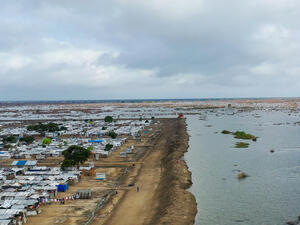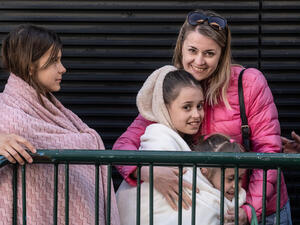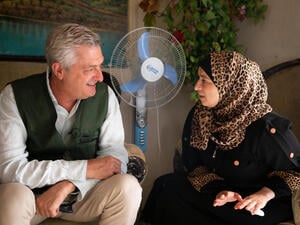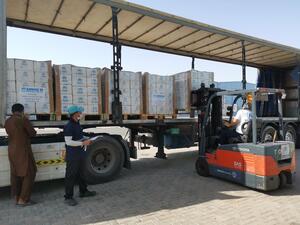Hungarian volunteers offer warm welcome for refugees
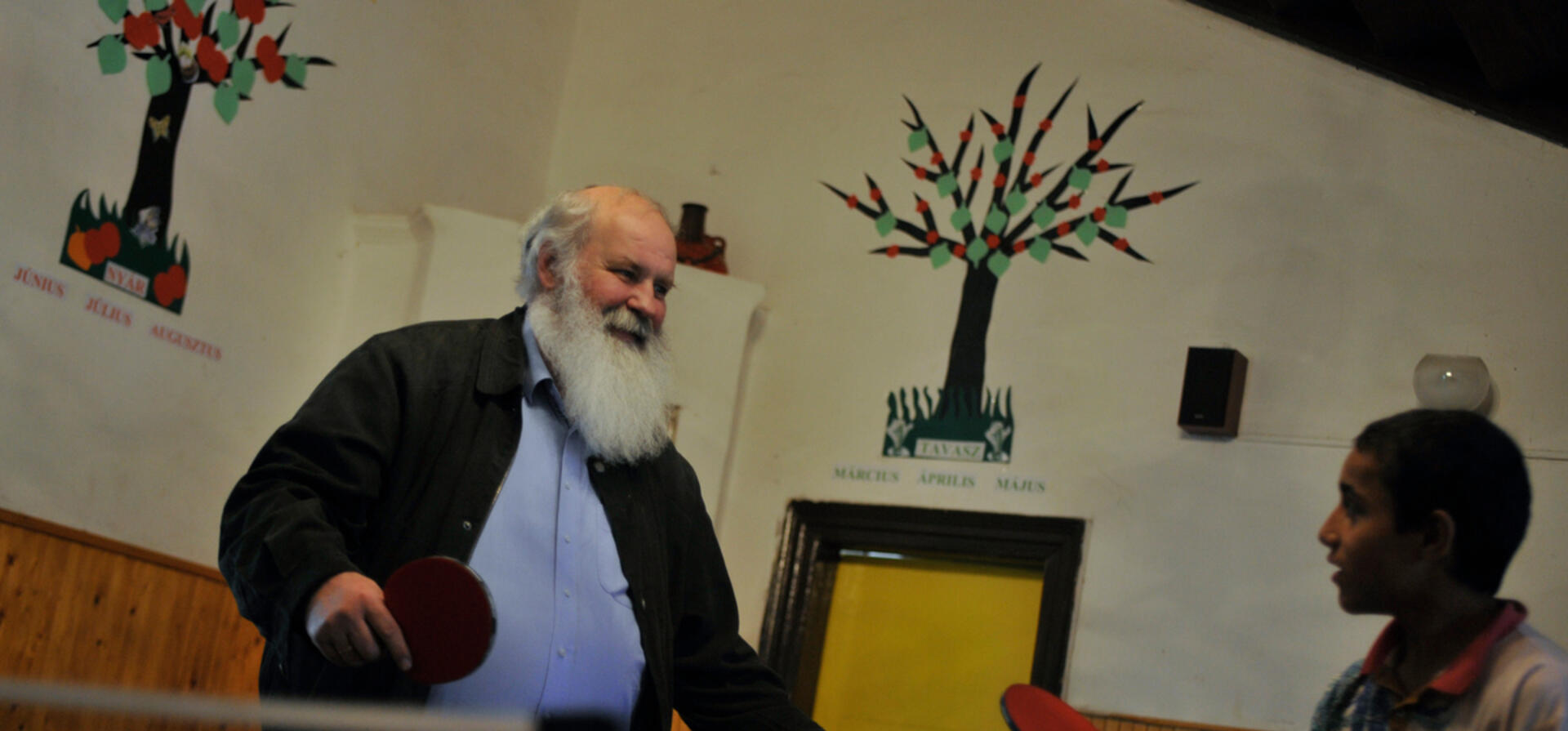
Hungarian volunteers offer warm welcome for refugees
The kitchens of the John Wesley Theological College resound to the clatter of pans and the chopping of vegetables. Hungarian staff are making meals not only for their own students. Also invited are Budapest’s homeless, and any refugees who might like a seat at the table.
“Beans and pasta today,” said Andras Rakos, a graduate of the college, which trains social workers like himself as well as Methodist ministers. He is now a social worker at the college. “We do try to have a menu and vary it, but if someone donates a load of potatoes, then we have to use up the supply.”
Hungarians in many walks of life are helping refugees. The government sought a "No" vote in a referendum in early October on whether to accept European Union quotas for refugees. It won a majority of those who voted but the turnout was less than the 50 per cent needed to make the vote legally valid.

Social worker Andras Rakos speaks to an asylum-seeker about his residency papers at a shelter for homeless people and refugees in Budapest.
Writer Janos Boris has strong views. His father was a Holocaust survivor and as a 12-year-old boy, Janos witnessed the Hungarian Uprising, put down by Soviet forces in 1956. He vividly remembers the panic afterwards, how neighbours packed up and joined an exodus of up to 300,000 refugees while the borders were still open.
"It was just like today," he said. "There were people smugglers and you could do a deal with them. They would tell you when the truck was coming, and you could only bring one suitcase.”
Boris stayed on in Budapest because his father was a radiologist who feared he would not be able to continue in his profession if he went abroad.
“When people are in deadly danger, when they leave everything they once had … then help must be given.”
Boris is moved by today’s refugee crisis. While expressing concern about the sheer numbers and difficulties of integration in Europe, he said: “I am absolutely sure that when people are in deadly danger, when they leave everything they once had or loved behind to escape with their bare lives, then help must be given.”
Some Hungarians have helped by volunteering and handing out provisions to refugees, as does the MigSzol Szeged ("Solidarity with Migrants") group in the southern city of Szeged. This is not to be confused with another MigSzol group, in existence for longer, which leans more towards political activism.
Among other things, it raises awareness of the plight of would-be asylum seekers in detention and visits open camps to give refugees information about their rights.
Mussa Kilam, from Eritrea, now has legal protection in Hungary. He earns his living as an interpreter and volunteers for the original MigSzol group.
He described his struggle, knowing nothing of the language, to find work and accommodation when he returned to Hungary after being deported from Germany.
He said that, once refugees had their papers in order and were able to move on from camps and refugee centres, a new problem arose: the risk of homelessness. MigSzol has made a video about the issue, showing his difficulties in finding a flat.
Andras Rakos, speaking during a tour of John Wesley College, said refugees and the Hungarian homeless were accommodated separately, although if necessary they shared the same medical facilities. “It is true that the problems of refugees and the homeless can overlap,” he said. “If they are ill, then everybody is ill together.”
In his small study, college principal Gabor Ivanyi, who is chairman of the Hungarian Evangelical Brotherhood, offers green tea and raw carrots for refreshment before reflecting on his volunteers’ attempts to deliver food to refugees at the Hungarian border fence this summer.
“It seems we got under their (the authorities’) feet,” he said. “Some officers threatened to handcuff us. The situation varied from day to day. It depended on the attitudes of individual police and army personnel.”

Pastor Gabor Ivanyi (right) has played a prominent role delivering food to refugees in Hungary's border zones and has also campaigned for portable toilets to be installed.
Ivanyi, a genial figure with a long, white beard, came to prominence in Hungary over his fight with the authorities to be allowed to install donated portable toilets near the transit zone at the border.
“I would not wish on anybody,” he said, “the suffering when you cannot find an adequate place to relieve yourself. Then you know how excruciating it is when men, women and children live together, with only a few bushes in sight, and officers are constantly scanning the area with their field glasses, paying attention to the slightest motion, and you have to relieve yourself under these conditions.”
Toilets were eventually installed on the Serbian side of the border.
Ivanyi is a church elder, both in seniority and age. He does not boast about it, but video footage shows him raking and clearing away rubbish at the border, not afraid to roll his sleeves up alongside younger volunteers.
“It would make me sad if I could have made a difference but I did not, to spare my health,” he said. “I know we are given the amount of strength needed to get up every morning and to finish the day decently.”






